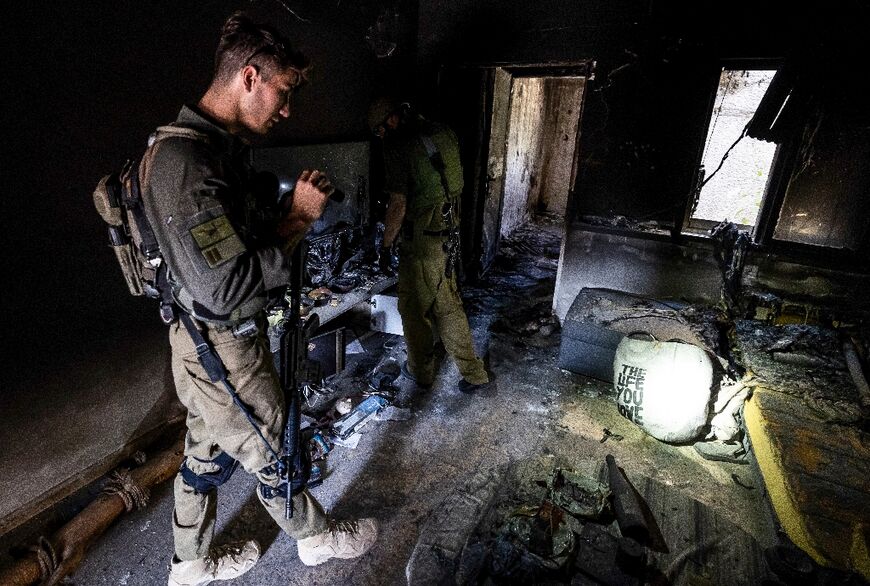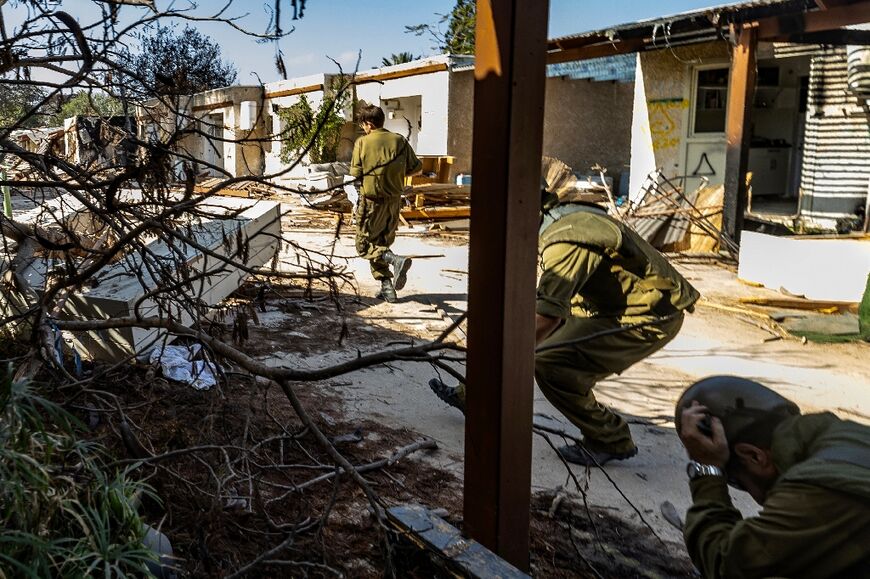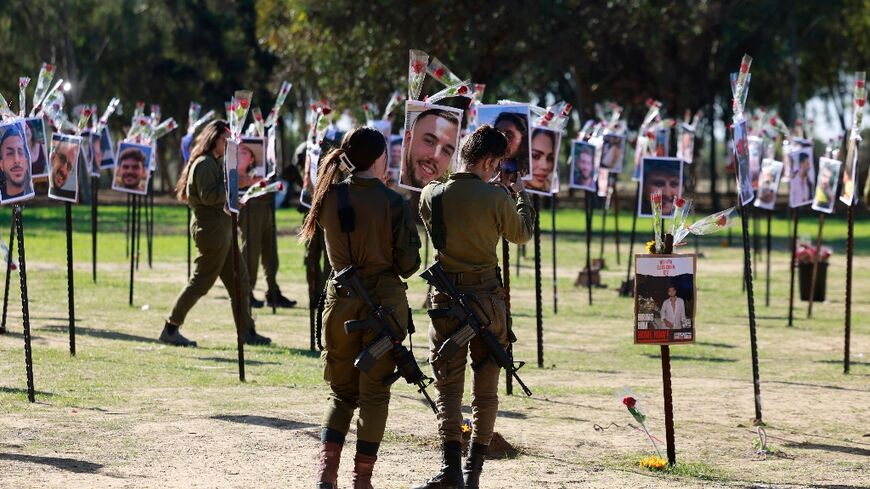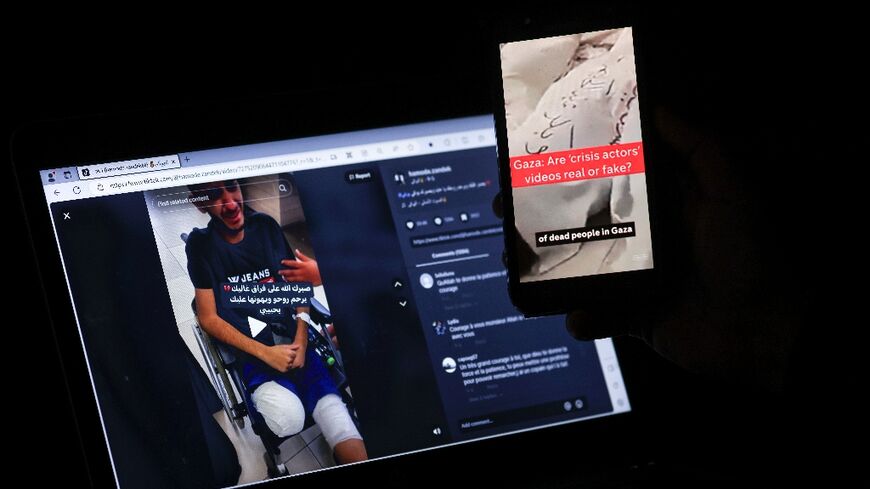Wrecked Israeli community grieves for peaceniks killed in Hamas attacks
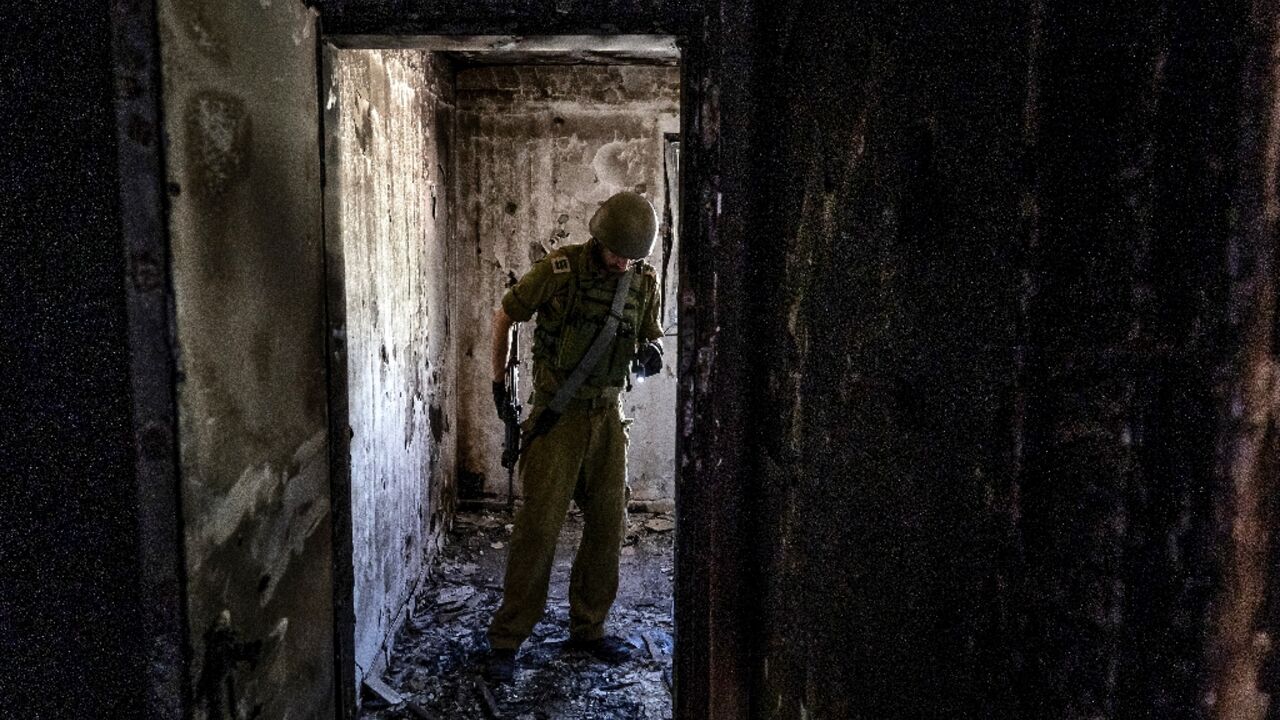
Rounds of outgoing Israeli artillery rattle the edge of the war-afflicted Gaza Strip, where a kibbutz community grieves for residents killed in Hamas attacks who had rallied for peace with Palestinians.
The stench of death still pervades charred homes, littered with blood-soaked sofas, broken guitars and bullet-riddled appliances, more than a month after Kfar Aza in southern Israel was stormed by Palestinian gunmen.
The community faced one of the worst atrocities of October 7, when the lightning attack across southern Israel left 1,400 people dead, mainly civilians, according to Israeli officials.
Sixty-two of them were killed in Kfar Aza and 18 other kibbutz residents were abducted and believed to be held in Gaza, according to a toll provided by an Israeli military official during a media tour, one of many organised in recent weeks in the face of global criticism over mounting deaths in Gaza.
The Hamas-run health ministry says a ferocious Israeli military campaign has killed more than 10,000 people.
Among those killed in Kfar Aza were a handful of vociferous peaceniks, including Ofir Libstein, head of the regional council of Gaza border communities whose office said had died fighting Hamas gunmen.
Libstein had advocated an "economic peace" paradigm in hopes of resolving Israel's decades-long conflict with the Palestinians, his supporters told AFP.
"That vision was also killed here," said Israeli army Major Nir Boms during the tour, as he walked past a house with a poster bearing Libstein's photo.
- 'Cruel irony' -
People who knew Libstein and his work described a plan to build a shared industrial zone along the border that would provide jobs to thousands of Palestinians in Gaza -- an economic incentive to reject Hamas hardliners.
"Libstein strove to break the cycle of violence and hatred with kindness and humanity," Rabbi Nancy Myers from the California-based Temple Beth David told AFP by email.
The killing and abduction "of so many peaceful Israelis who lived on the border of Gaza will make it so much harder for there to be peaceful coexistence between Palestinians and Israelis", argued Myers.
Boms claimed Gazans who had received permits to work on farmlands in Israeli communities were involved in the planning of the October 7 attacks and provided intelligence to Hamas, the Islamist militant group that rules Gaza.
"There is certainly a cruel irony about Ofir's fate given his vision for developing economic co-dependence," said Leon Goldsmith of the University of Otago in New Zealand.
Goldsmith said Libstein, whom he met in July during a academic workshop, spoke about his economic plans as they looked over the Erez crossing between the Gaza Strip and Israel, bombarded and shuttered since war broke out.
"Ofir and others in this region were well intentioned" and offered "a more constructive path relative to the extreme hardliners in the Israeli government", Goldsmith told AFP.
- 'Indiscriminate' -
During the media tour, organised by the Jerusalem Press Club and facilitated by the military, the group was hustled inside a bomb shelter as a siren indicated incoming fire.
An anguished military rabbi described his "holy mission" to gather the remnants of dismembered bodies to allow for dignified burials while volunteers cleaned up the rotting contents of refrigerators inside homes cleared of explosives.
As it faces mounting criticism over its unrelenting Gaza campaign, the Israelis have offered multiple tours of cordoned-off kibbutz communities to the international press.
"Israel is trying to highlight the indiscriminate nature of the attacks from Hamas -- that no one, irrespective of age, gender or ideology was immune -- and that what is happening now in Gaza is not without cause," Carmiel Arbit, a senior fellow at the Atlantic Council, told AFP.
Arbit said a "small yet unflappable community of Israelis who have dedicated their lives to finding peace" are often scrutinised by the Israeli mainstream for their precived "naivety".
Maayan, a 38-year-old whose parents were killed in the Kfar Aza attack, said the polarised "pro-Israeli" and "pro-Palestinian" debates had left her anguished.
"I am pro-peace," she told AFP, asking to be identified by first name only for privacy concerns.
"My parents would have said the same."


